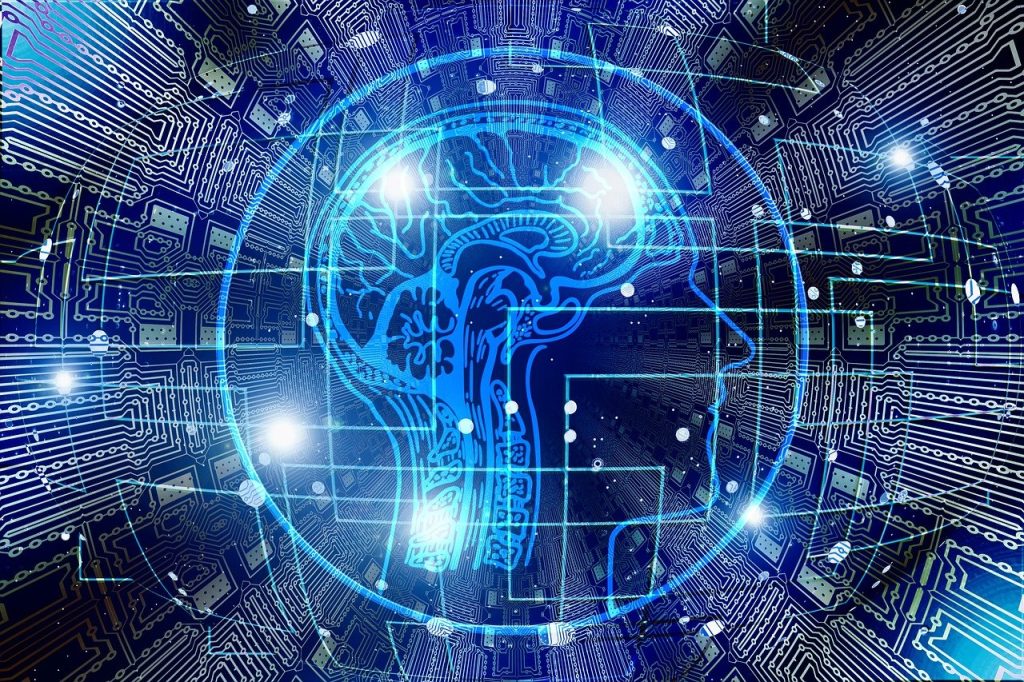Artificial Intelligence (AI) has been making significant strides in various sectors, including healthcare, finance, and manufacturing. One area where AI has the potential to make a substantial impact is energy efficiency. By leveraging AI algorithms and technologies, businesses and industries can optimize their energy consumption, reduce waste, and achieve sustainable development goals.
This article explores the role of AI in advancing energy efficiency, focusing on its impact on manufacturing enterprises, mechanisms, and potential policy implications. It also highlights the challenges and opportunities that AI presents in achieving energy efficiency goals.

As global energy demand continues to rise, improving energy efficiency has become a pressing issue for countries worldwide. One way to address this challenge is by leveraging the power of AI technologies. AI can help optimize energy consumption, reduce waste, and promote sustainable development in various industries, particularly in manufacturing.
Manufacturing enterprises consume a significant amount of energy, and improving their energy efficiency is essential to achieving regional and global greenhouse gas emission reduction targets. AI can play a crucial role in this regard, as it can promote technological progress, improve technical efficiency, and optimize resource allocation.
The following sections delve into the impact of AI on the energy efficiency of manufacturing enterprises, the mechanisms through which AI affects energy efficiency, and the heterogeneity of its effects across different types of enterprises.
2. The Impact of Artificial Intelligence on Energy Efficiency
2.1. Technological Progress
AI technologies can accelerate knowledge learning and creation, leading to increased investment in research and development (R&D) and talent in manufacturing enterprises. As a result, technological progress is promoted, resulting in optimized equipment usage and energy consumption decisions.
AI can also facilitate knowledge spillover and information sharing, promoting technological innovation and driving improvements in energy efficiency. By accelerating the process of knowledge reorganization, AI can contribute to the creation of new knowledge and computing solutions, ultimately enhancing the energy efficiency of manufacturing enterprises.
2.2. Technical Efficiency
AI can improve the technical efficiency of manufacturing enterprises by enhancing production and resource allocation efficiency. By replacing low-skilled production workers with intelligent technologies, enterprises can improve product quality and reduce energy consumption caused by repeated production of substandard products.
Furthermore, AI can optimize resource allocation by allowing equipment to self-perceive, self-analyze, and self-decide. This leads to real-time feedback and optimization of production information, reducing equipment response time and energy waste while significantly improving resource allocation efficiency and energy efficiency.
2.3. Improving Energy Efficiency through Artificial Intelligence
Several studies have demonstrated the positive impact of AI on energy efficiency. For example, Chen et al. (2021) found that using AI technologies could improve energy efficiency and promote the use of renewable energy. Similarly, Huang et al. (2022) observed that employing industrial robots in manufacturing enterprises could enhance energy efficiency through scale effects.
These findings suggest that AI can significantly improve the energy efficiency of manufacturing enterprises by promoting technological progress and improving technical efficiency.

3. Mechanisms of Artificial Intelligence in Energy Efficiency
3.1. Knowledge Learning and Creation
AI can facilitate knowledge learning and creation by accelerating the process of knowledge reorganization and promoting the re-creation of knowledge and information. This can lead to improved learning and absorptive capacity in employees, promoting the absorption and creation of knowledge within the enterprise.
In turn, this promotes technological innovation, results in more optimized equipment and energy use decisions, and improves energy efficiency.
3.2. Investment in R&D and Talent
The development of AI can encourage manufacturing enterprises to increase their investment in talents and R&D. Talent and R&D investment can further promote technological progress, leading to the optimization of production processes and improvements in energy efficiency.
By increasing investment in R&D and talent, manufacturing enterprises can ensure that they stay at the forefront of technological advancements and capitalize on the benefits of AI-driven energy efficiency improvements.
3.3. Resource Allocation Efficiency
AI can enhance the efficiency of resource allocation by enabling equipment to self-perceive, self-analyze, and self-decide. This results in real-time feedback and optimization of production information, reducing equipment response time and energy waste while significantly improving resource allocation efficiency and energy efficiency.
Through these mechanisms, AI can drive improvements in energy efficiency in manufacturing enterprises by promoting technological progress, improving technical efficiency, and optimizing resource allocation.
4. Heterogeneity of Artificial Intelligence’s Impact on Energy Efficiency
The impact of AI on the energy efficiency of manufacturing enterprises may vary depending on the characteristics of individual enterprises. This section examines the heterogeneity of AI’s effects on energy efficiency across different types of enterprises.
4.1. Firm Age
The age of a manufacturing enterprise may influence the effectiveness of AI in promoting energy efficiency. As companies age, their structure becomes more rigid, affecting their ability to adjust their energy structure and improve energy efficiency.
Research has shown that the longer an enterprise has been established, the smaller the effect of AI on its energy efficiency. This suggests that younger manufacturing enterprises may be better positioned to capitalize on the benefits of AI-driven energy efficiency improvements.
4.2. Firm Performance
The performance of a manufacturing enterprise may also affect the impact of AI on energy efficiency. Enterprises with higher performance levels have more resources to invest in AI technologies, allowing them to fully harness the benefits of intelligent transformation.
Research indicates that the higher the performance of a manufacturing enterprise, the greater the effect of AI in improving its energy efficiency. This highlights the importance of strong enterprise performance in leveraging the potential of AI to enhance energy efficiency.
5. Policy Implications
Based on the findings of this article, several policy recommendations can be made to help manufacturing enterprises leverage the potential of AI in improving energy efficiency:
- Encourage the widespread application of AI in manufacturing enterprises, focusing on promoting technological progress and improving technical efficiency.
- Support manufacturing enterprises in increasing their investment in R&D and talent to stay at the forefront of AI-driven technological advancements.
- Recognize the importance of enterprise heterogeneity when implementing AI-driven energy efficiency policies, ensuring that younger and higher-performing enterprises are well-positioned to capitalize on the benefits of AI technologies.

6. Challenges and Opportunities
While AI offers significant potential for improving energy efficiency in manufacturing enterprises, several challenges must be addressed to fully realize its benefits. These challenges include:
- Data limitations: The availability and quality of data on the application of AI in manufacturing enterprises can constrain the effectiveness of AI-driven energy efficiency improvements.
- The productivity paradox: The excessive automation brought about by AI may restrict the growth of technical efficiency and cause an energy “rebound effect,” ultimately inhibiting energy efficiency improvements.
- Addressing the endogenous problems in econometric models: Ensuring the validity and robustness of econometric models used to assess the impact of AI on energy efficiency is crucial to generating accurate insights.
Despite these challenges, AI presents significant opportunities for enhancing energy efficiency in manufacturing enterprises. By promoting technological progress, improving technical efficiency, and optimizing resource allocation, AI can help manufacturing enterprises achieve their energy efficiency goals and contribute to sustainable development.
7. Conclusion
Artificial intelligence has the potential to significantly improve the energy efficiency of manufacturing enterprises by promoting technological progress, improving technical efficiency, and optimizing resource allocation. Policymakers should recognize the importance of AI in advancing energy efficiency and support manufacturing enterprises in harnessing the benefits of AI technologies.
Future research should focus on the long-term effects of AI on energy efficiency in manufacturing enterprises and explore the potential of AI-driven energy efficiency improvements in other industries and countries. By leveraging the power of AI technologies, businesses and industries worldwide can optimize their energy consumption, reduce waste, and achieve sustainable development goals.
